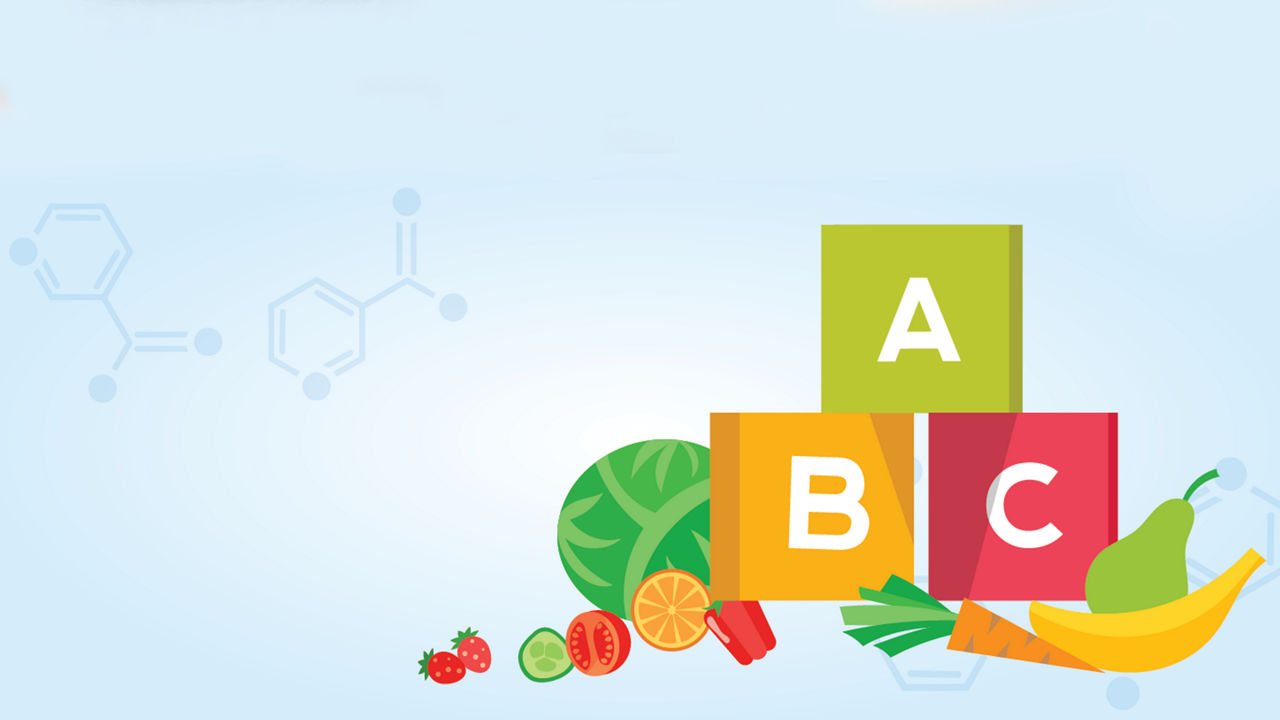Breastmilk is the best for babies. The World Health Organisation recommends exclusive breastfeeding for the first six months of life. Unnecessary introduction of bottle feeding or other food and drinks will have a negative impact on breastfeeding. After six months of age, infants should receive age-appropriate foods while breastfeeding continues for up to two years of age or beyond. Consult your doctor before deciding to use infant formula or if you have difficulty breastfeeding.
What Exactly are Vitamins?
Vitamins are organic substances necessary for the normal functioning of your child's body. Most of the essential vitamins can be produced naturally with the aide of a healthy diet and proper nutrition. They are important in supporting the growth and general well-being of your baby.
Which Vitamins Does my Child Need?
Every child will have different nutritional needs. That’s why it’s important to consult with your child’s paediatrician before changing his or her meal plan or dietary supplement.
What are the most common Vitamin Deficiencies in Children?
Vitamin C - Children who do not get enough fruits and vegetables in their diet are more likely to have Vitamin C deficiency. Vitamin C is important as it helps form and repair red blood cells, bones and tissue, in addition to strengthening your child's blood vessels and immune system.
B Complex Vitamins - Kids who eat a high refined sugar and starch diet are more likely to deplete these crucial vitamins. B-complex vitamins are an important group of nutrients that work together to help your child’s body convert protein, carbohydrates and fat into energy. Your baby needs B vitamins to metabolize their milk or formula properly.
Essential Fatty Acids (EFA), Including DHA - While EFA’s can be easily be found in some food, including pumpkin seeds, cold oily ocean fish like tuna, canola oil and flax oil, some children often don’t find the strong flavour of oily fish or other EFA-rich foods to be particularly tasty. EFA’s such as DHA are essential building blocks to supporting your child’s brain and eye development.
What is the best source of vitamins for my child?
Healthy Well-Balanced Diet - A healthy and well-balanced diet is the best way to provide your child with the necessary vitamins that will help support his growth and development as well as strengthen his natural defences. Try to offer your child a variety of healthy food from different food groups to help ensure that he gets the best nutrition possible out of every meal.
This, however, may be easier said than done as many children don’t always want to eat the way you would like them to. Fussy eaters may not be getting all the essential vitamins, minerals and other important nutrients they need in order to grow. In these cases, you might want to consider supplementing these nutrients for your child. But before you do, please seek advice from your health professional.
Baby Milk Formula - Some baby milk formulas are packed with essential vitamins, minerals and DHA that can support your child’s brain and eye development, as well as help strengthen his natural defences. Also, they are much easier to consume especially for children aged 10 months to 2 years.
Chewable Vitamins - Chewable vitamin supplements are available, but always check their use of sugars and artificial colourants and flavourants. There are countless brands of commercially available synthetic vitamins, and though synthetic vitamins and minerals can produce satisfactory results, the benefits of natural vitamins most often surpass them.
Join our AptaAdvantage Club today to enjoy:
- Educational content to support you on your motherhood journey
- Various complimentary classes and exclusive discounts with our key enrichment partners
Kickstart your AptaAdvantage experience by signing up HERE.
http://healthyeating.sfgate.com/much-vitamin-b-babies-need-9176.html
https://smartypantsvitamins.com/does-your-child-have-a-b-vitamin-deficiency/
http://healthyeating.sfgate.com/much-vitamin-b-babies-need-9176.html
http://www.babycenter.com/404_does-my-baby-need-to-take-vitamins_9154.bc
http://www.health24.com/Parenting/Child/Nutrition/Vitamins-every-child-needs-20120721
Related articles

Connect with our team of experts
We provide advice and support for you on your parenthood journey




